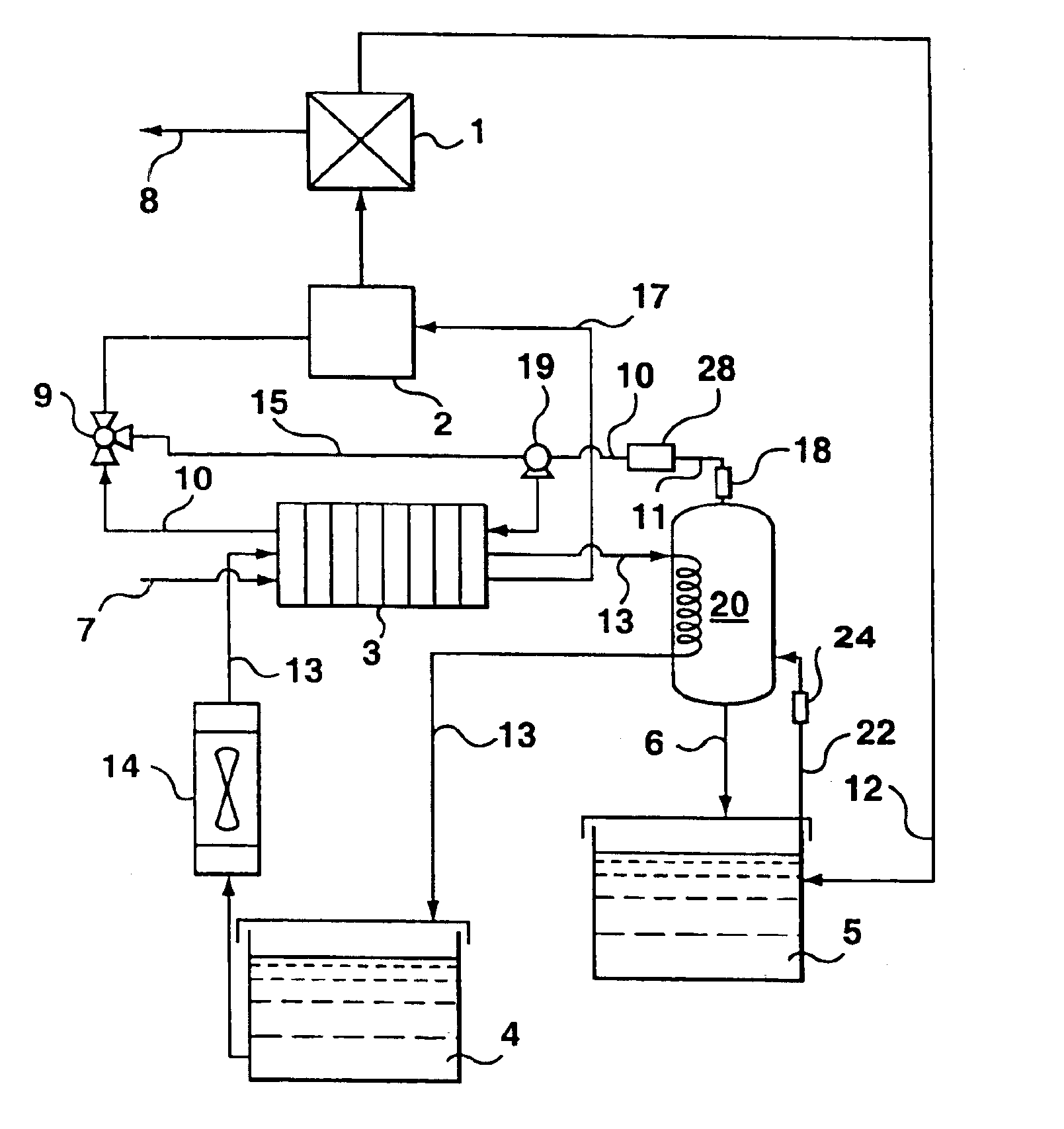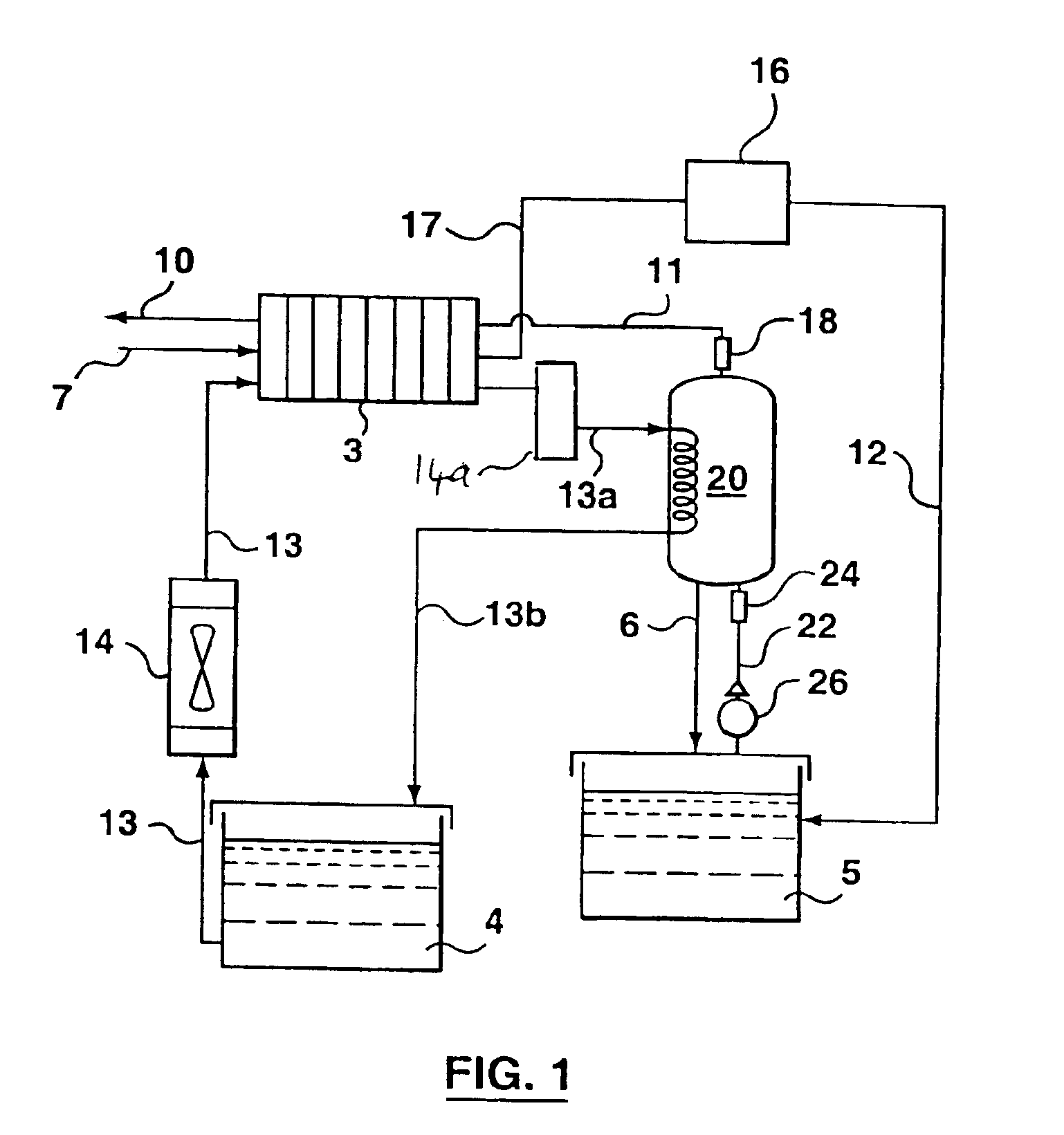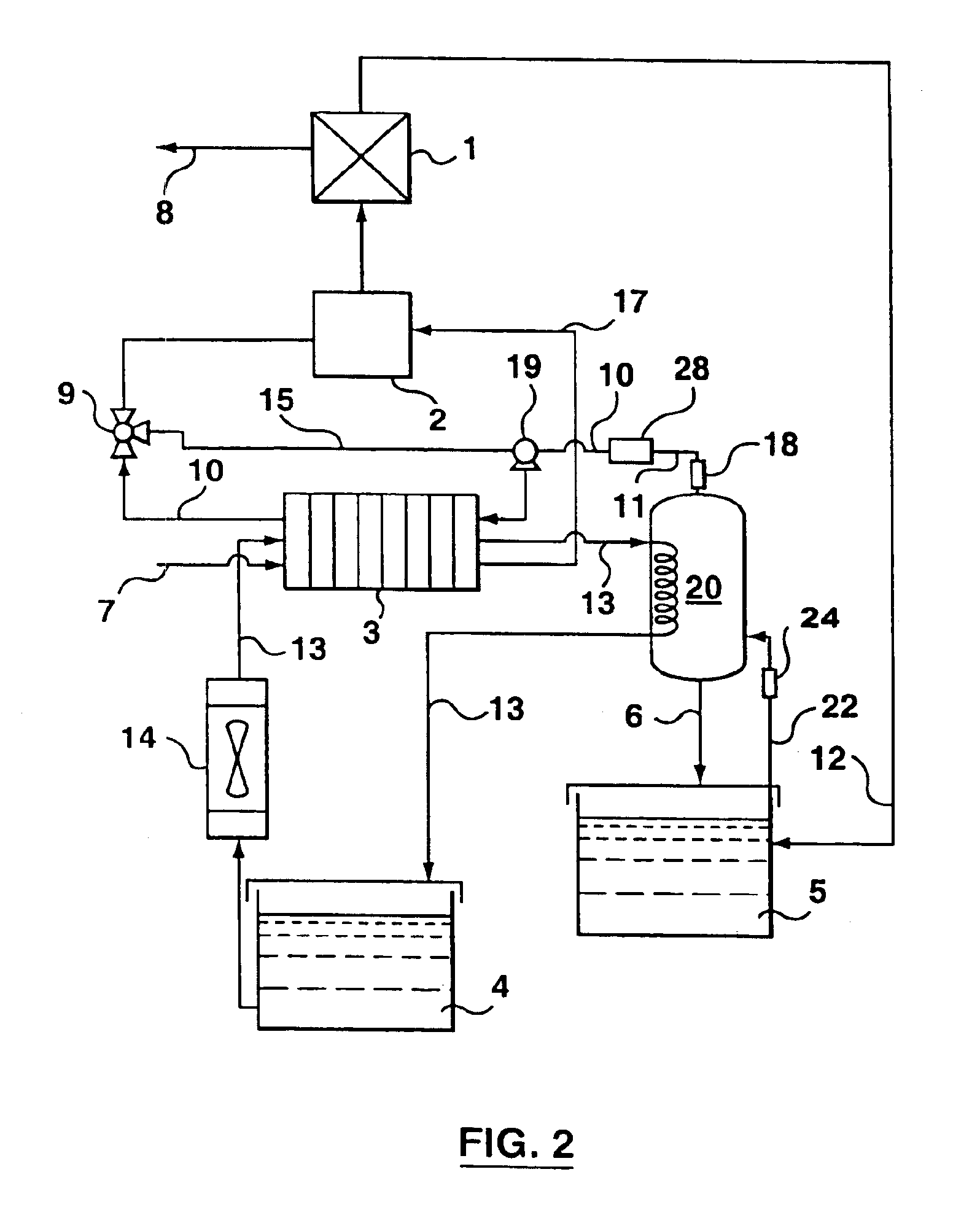Chemical hydride hydrogen generation system and fuel cell stack incorporating a common heat transfer circuit
a technology of hydrogen generation system and fuel cell stack, which is applied in the direction of hydrogen production, electrochemical generators, chemistry apparatus and processes, etc., can solve the problems of increasing the overall system weight, each of these systems is either hazardous or bulky, and achieves the effect of effective heat transfer between them
- Summary
- Abstract
- Description
- Claims
- Application Information
AI Technical Summary
Benefits of technology
Problems solved by technology
Method used
Image
Examples
second embodiment
[0052]Now referring to FIG. 2, the present invention is shown. In this embodiment, similar components are indicated with same reference numbers. As can be seen in FIG. 2, the chemical hydride hydrogen generation system according to the present invention combines a hydrogen generation system and a fuel cell system. The hydrogen generation system generally includes a chemical hydride storage tank 5 and a reactor 20. The fuel cell includes a fuel cell stack 3 and some peripherals, namely a coolant storage tank 4, a heat exchanger 14, a catalytic burner 2 and a water recovery unit 1. In this embodiment, the present invention is also described using NaBH4 as an example of the chemical hydride used in the hydrogen generation system.
[0053]The hydrogen is generated in the reactor 20 in the same manner as that in the first embodiment. Likewise, the coolant loop is also identical to that in the first embodiment. Therefore, for simplicity and brevity, the description of the components will not...
first embodiment
[0054]In this embodiment, hydrogen enters the fuel cell stack 3 from the hydrogen outlet of the reactor 20. Preferably, a filter 28 is provided in the hydrogen line 11 before the hydrogen enters the fuel cell stack 3 to remove fine aerosol particles in solution, catalyst and other particles (and this filter can be included in FIG. 1). As is known to those skilled in the art, a considerable portion of both air and hydrogen supplied to the fuel cell stack 3 does not react. Rather, the excess hydrogen and air leave the fuel cell stack 3 through the anode and cathode outlets thereof, respectively. Therefore, it is preferable to recirculate the excessive hydrogen back to the fuel cell stack 3 for reaction. For this purpose, a hydrogen recycle loop 15 and a catalytic burner 2 are provided in this embodiment. As shown in FIG. 2, a valve 9 and a centrifugal pump 19 are provided respectively at the two ends of the hydrogen recycle loop 15. Specifically, a centrifugal pump 19 is provided at t...
third embodiment
[0056]Fundamentally, this third embodiment of the apparatus provides a shared coolant system for the fuel cell stack 3 and the chemical hydride hydrogen generation system, which in turn provides advantages on the start-up mode of the system. Specifically, a common coolant or heat transfer circuit is provided, extending through both the fuel cell stack 3 and the reactor 20. This enables heat to be transferred between the fuel cell stack 3 and the reactor 20. More particularly, this arrangement enables heat from the hydrogen generation reaction to be used to heat up the fuel cell stack 3 in an initial startup mode, and following startup, a single heat exchanger can be provided, to extract heat from the system and to maintain both the chemical reactor 20 and the fuel cell stack 3 at a desired operating temperature.
[0057]In FIG. 7, considering first the hydrogen generation scheme, the hydride storage tank 5, as before, is connected through a line 22 containing a pump 26 to the reactor 2...
PUM
 Login to View More
Login to View More Abstract
Description
Claims
Application Information
 Login to View More
Login to View More - R&D
- Intellectual Property
- Life Sciences
- Materials
- Tech Scout
- Unparalleled Data Quality
- Higher Quality Content
- 60% Fewer Hallucinations
Browse by: Latest US Patents, China's latest patents, Technical Efficacy Thesaurus, Application Domain, Technology Topic, Popular Technical Reports.
© 2025 PatSnap. All rights reserved.Legal|Privacy policy|Modern Slavery Act Transparency Statement|Sitemap|About US| Contact US: help@patsnap.com



